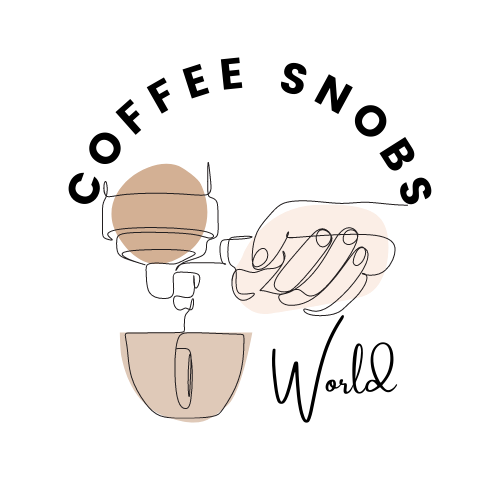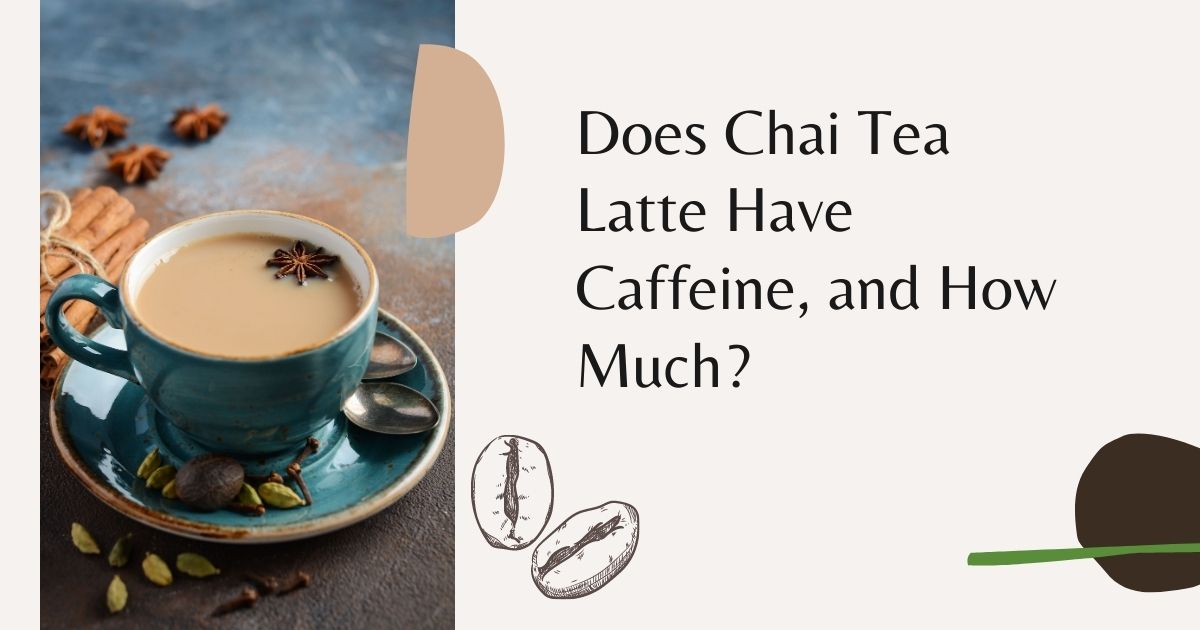What is a Chai Latte?
This article will answer the question, “Does chai tea latte have caffeine?” and more. A chai latte from India is a popular hot beverage combining tea, milk, and spices for a flavorful experience. In Hindi, “chai” means tea, while “latte” comes from the Italian caffè latte, meaning “milk coffee.” Variations may include vanilla, nutmeg, or espresso shots for an added kick.
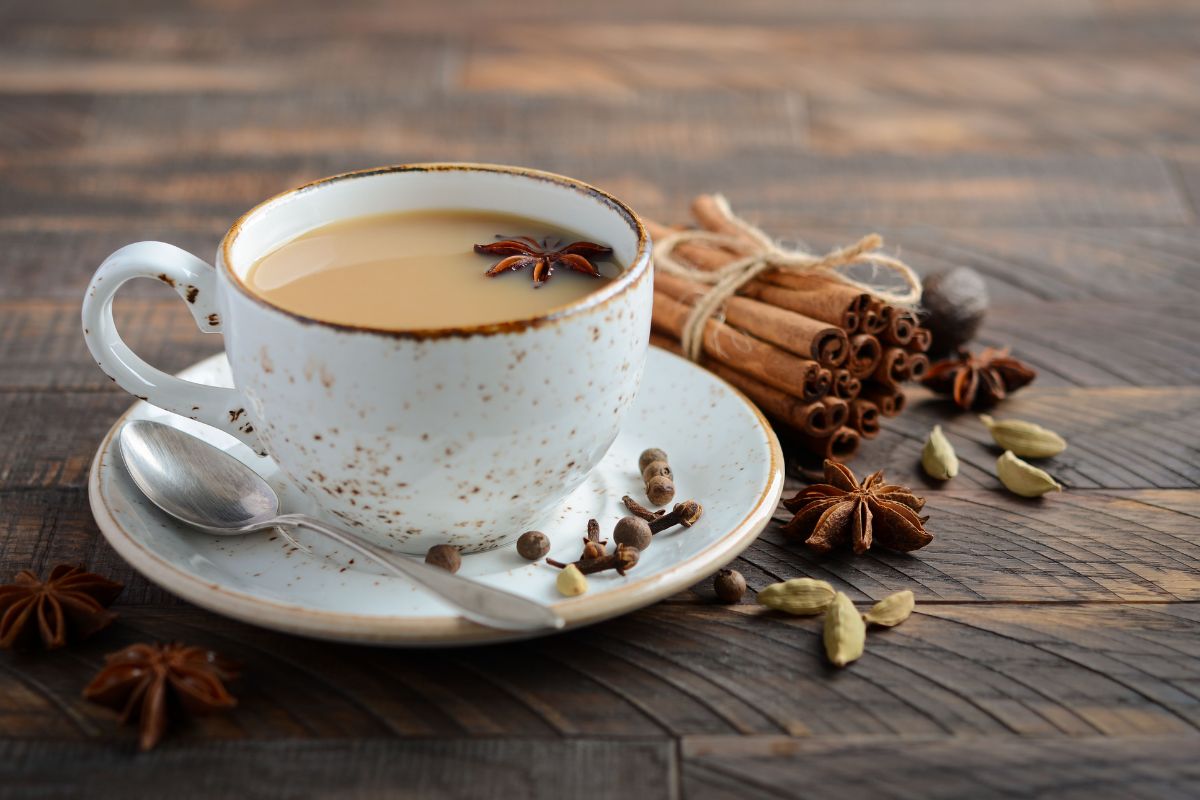
Does Chai Tea Latte Have Caffeine?
You may wonder, is chai tea caffeinated? Yes, chai tea latte does contain caffeine. The black tea used as the base ingredient in chai lattes naturally contains caffeine. In general, black tea has moderate caffeine content.
When a chai tea latte contains black tea, the caffeine present in the tea leaves gets into the beverage during the brewing process.
You should note that factors such as the brewing time, water temperature, and the specific brand or blend of tea used can influence the caffeine content. However, chai tea latte generally contains less caffeine than a regular cup of coffee, as the tea-to-milk ratio is typically higher.
How Much Caffeine in a Chai Latte?
The amount of caffeine in a chai latte depends on a number of factors. These include the type of tea used, the brewing method, and the specific recipe or brand. However, in general, chai latte made with black tea contains caffeine.
Black tea typically contains 0.00088-0.00169 ounces (25-48 milligrams) of caffeine per 8-ounce (226.8-gram) serving. Since we make chai latte combining tea with milk and other ingredients, the caffeine content may be less than a standard cup of brewed tea.
The Calories in Chai Lattes
On average, a small 8-ounce (240 milliliters) chai latte made with whole milk and sweetened can range from approximately 120 to 180 calories. Remember that alternative options like almond or skim milk can lower the calorie count.
However, you can increase chai latte calories by adding ingredients such as syrups, whipped cream, or flavored powders. Some specialty chai lattes available in coffee shops may have higher calorie counts due to added ingredients or larger serving sizes.
If you are uncomfortable with the calorie content, you can opt for reduced-fat milk, sugar-free sweeteners, or smaller serving sizes to help lower the overall calorie intake. It’s also worth checking the specific nutritional information or asking the barista for details, as the calorie content varies between establishments and recipes.
The Benefits of Chai Tea
Thanks to its blend of tea and spices, chai tea offers several potential benefits. Here are some of the potential benefits associated with chai tea:
- Antioxidant properties: Chai tea contains black tea, which is rich in antioxidants. These compounds help protect the body against free radicals, which can contribute to various health issues.
- Digestive support: Many of the spices used in chai tea, such as ginger, cardamom, and cinnamon, have been traditionally used to support digestion. They may help alleviate bloating, indigestion, and nausea.
- Potential anti-inflammatory effects: Some spices in chai tea, including ginger and cinnamon, have anti-inflammatory properties. These effects may help reduce inflammation in the body.
- Energy and mental alertness: Chai tea contains caffeine from the black tea leaves. The moderate caffeine in chai tea can provide a natural energy boost and enhance mental alertness.
- Relaxation and stress relief: Chai tea is good for its soothing and comforting qualities. The warm beverage and aromatic spices like cinnamon and cloves can create a relaxing and calming experience.
- Blood sugar regulation: Certain spices in chai tea, such as cinnamon, may help regulate blood sugar levels. This can benefit individuals with diabetes or those looking to manage their blood sugar levels.
Are There Decaffeinated Versions?
Yes, decaffeinated versions of chai tea are available. Decaffeinated chai tea goes through a decaffeination process to remove or reduce the caffeine content in the tea leaves.
The decaffeination process can vary depending on the brand or manufacturer. Still, it generally involves treating the tea leaves with solvents or using carbon dioxide extraction or water processing methods to remove caffeine while preserving the flavor and aroma.
When purchasing chai tea, you can look for specific labels or indications mentioning “decaffeinated” to ensure you select the appropriate version. Alternatively, you can opt for herbal chai blends that do not contain traditional tea leaves, as they are naturally caffeine-free.
Are Chai Lattes Suitable Alternatives to Coffee?
Yes, chai lattes can be a suitable alternative to coffee for individuals looking for a different hot beverage option. Here are a few reasons why chai lattes can be an alternative to coffee:
- Flavor: Chai lattes offer a unique and flavorful experience combining tea, spices, and milk. The spices provide a distinctive taste that you can enjoy as an alternative to the bold flavor of coffee.
- Caffeine content: While chai lattes contain caffeine, the amount is generally lower than a regular cup of coffee. This makes them suitable for individuals who want to reduce their caffeine intake or those more sensitive to caffeine’s effects.
- Cultural influence: Chai lattes provide a cultural touch with their Indian origins and traditional preparation methods. They can offer a refreshing change and a chance to explore different flavors and cultural influences in your beverage choices.
- Variety: Chai lattes offer a range of variations and customization options. To create your preferred flavor profile, you can experiment with different spices, milk types, sweeteners, and additional ingredients like vanilla or nutmeg. This versatility allows for a personalized and enjoyable drink experience.
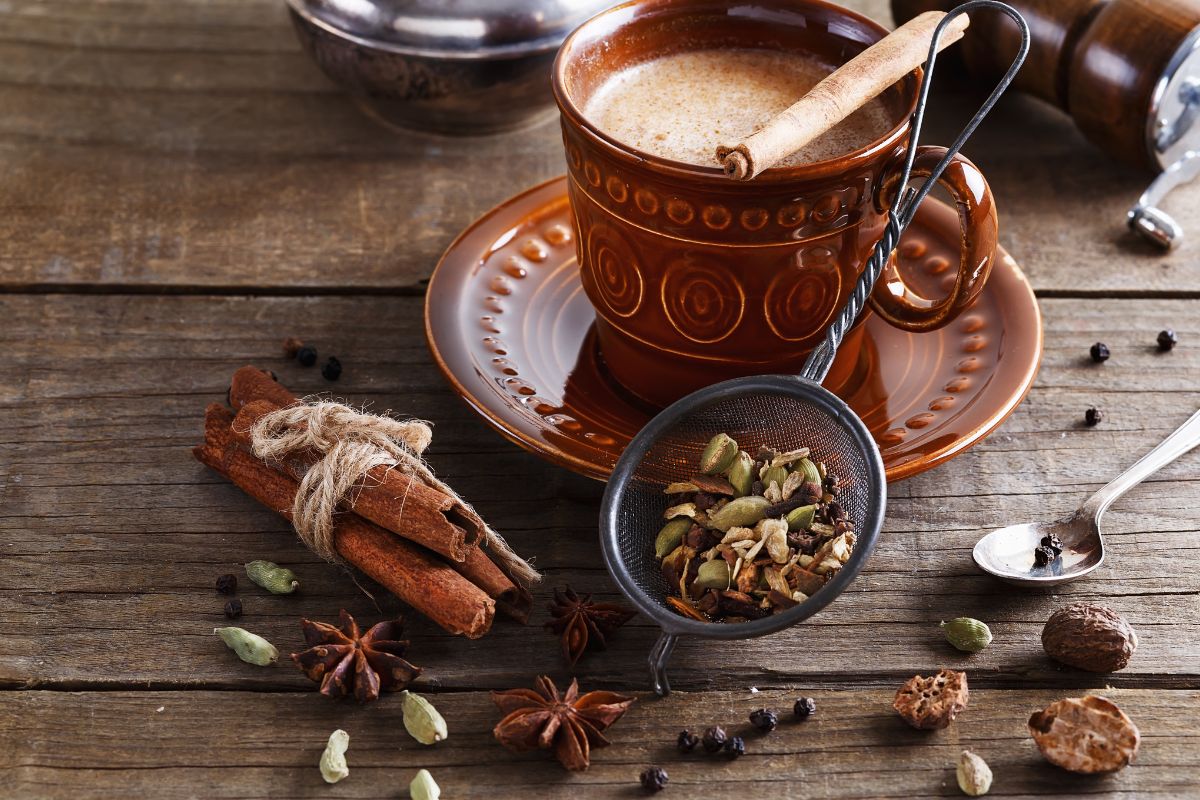
How to Make a Chai Tea Latte at Home
Making a chai tea latte at home is simple and allows you to customize it to your preferences. Here’s a basic recipe to guide you:
Time: 10 minutes
Serving size: 2 servings
Prep time: 5 minutes
Cook time: 5 minutes
Equipment Needed
- Small saucepan
- Cup
Ingredients
- 1 cup water
- 2-3 black tea bags or 2 tablespoons of loose black tea
- 1 cup milk (you can use dairy milk or plant-based alternatives like almond, soy, or oat milk)
- 2-3 teaspoons granulated sugar or sweetener of your choice (adjust according to taste)
- 1/2 teaspoon ground cinnamon
- 1/2 teaspoon ground cardamom
- 1/4 teaspoon ground ginger
- 1/4 teaspoon ground cloves
- Optional: a pinch of black pepper for added spice
Directions
- Boil the water in a small saucepan.
- Add the black tea bags or loose tea to the boiling water. Reduce heat to low and let it simmer for about 3-5 minutes, depending on how strong you prefer your tea.
- While the tea is simmering, add the milk to a separate saucepan and heat it over medium-low heat until it becomes warm. Be careful not to boil the milk.
- Once the tea has simmered for the desired time, please remove it from the heat and remove the tea bags.
- Add the strained tea to the warm milk in the saucepan.
- Stir in the sugar or sweetener, ground cinnamon, ground cardamom, ground ginger, ground cloves, and black pepper (if using). Adjust the sweetness and spices according to your taste preferences.
- Place the saucepan back on the stove over low heat and gently whisk the mixture until it becomes frothy.
- Remove it from the heat once the chai tea latte heats through and is frothy.
- Pour the chai tea latte into a mug and sprinkle a little cinnamon or nutmeg for garnish, if desired.
- Your homemade chai tea latte is now ready!
How Healthy Are Chai Tea Lattes?
The following are some factors to consider when evaluating the healthiness of chai tea lattes:
Nutritional Content
Chai tea lattes typically contain calories from the combination of tea, milk, sweeteners, and other ingredients. The calorie content depends on the type and amount of milk used, the presence of sweeteners like sugar or honey, and any added syrups or toppings. Choosing lower-fat milk options or sugar-free alternatives can help reduce the calorie content.
Spices and Antioxidants
Chai tea lattes contain spices that provide not only flavor but also potential health benefits. These spices have antioxidant and anti-inflammatory properties. However, the overall impact of these spices on health may be less in a chai tea latte due to the relatively small quantities used.
Caffeine Content
Chai tea lattes made with black tea will contain caffeine. While moderate caffeine intake can have some benefits, excessive consumption may lead to negative effects like sleep disturbances or increased heart rate. If you’re sensitive to caffeine or have specific health concerns, opting for decaffeinated chai tea lattes or herbal chai blends can be a healthier choice.
Added Ingredients
Some chai tea lattes can contain added ingredients like syrups, whipped cream, or flavored powders, which may lead to an increase in sugar and calorie content.
The Differences Between Chai Tea and Chai Tea Lattes
The main differences between chai tea and chai tea lattes are their ingredients, preparation methods, and consistency.
Overall, the primary distinction between chai tea and chai tea lattes is the consistency and the inclusion of additional ingredients in chai tea lattes to create a richer and creamier beverage. Chai tea is a more traditional preparation, while chai tea lattes are a modern adaptation that often resembles coffee-based lattes in terms of texture and flavor.
What Does a Chai Tea Latte Taste Like?
A chai tea latte has a unique and distinct flavor profile. It offers a combination of warm, aromatic, and spicy-sweet flavors.
Moreover, the chai tea latte delivers a harmonious blend of tea, spices, milk, and sweetness, resulting in a flavorful and satisfying beverage. It balances the creamy smoothness of milk, the warmth of spices, and a touch of sweetness, making it a popular choice for those seeking a comforting and aromatic hot drink.
Does a Chai Tea Latte Give You Energy?
Yes, a chai tea latte can provide you with energy, primarily due to two factors: caffeine and spices.
Chai tea lattes made with black tea contain caffeine, although the amount can vary depending on factors such as brewing time and the type of tea used. Caffeine helps increase alertness and temporarily ward off fatigue. While a chai tea latte’s caffeine content is generally lower than a cup of coffee, it can still provide a moderate energy boost.
Also, chai tea lattes often include spices with invigorating and warming properties. Ginger, for example, is popular for its potential to provide a natural energy boost and alleviate fatigue. Combining spices in a chai tea latte can contribute to a sense of revitalization and help you feel more energized.
Does Chai Tea Latte from Starbucks Have Caffeine?
Yes, Starbucks chai latte does contain caffeine. Generally, it has less caffeine than a regular coffee or espresso-based drink.
Starbucks’ chai tea latte contains a blend of black tea, spices, milk, and a sweetener (such as a flavored syrup or honey). Black tea naturally contains caffeine, although the exact amount can differ based on factors like brewing time and the tea leaves used.
Is Chai Tea Good for Weight Loss?
Chai tea alone is not your solution for weight loss, but it can be a part of a healthy weight loss journey when consumed as part of a balanced diet and lifestyle.
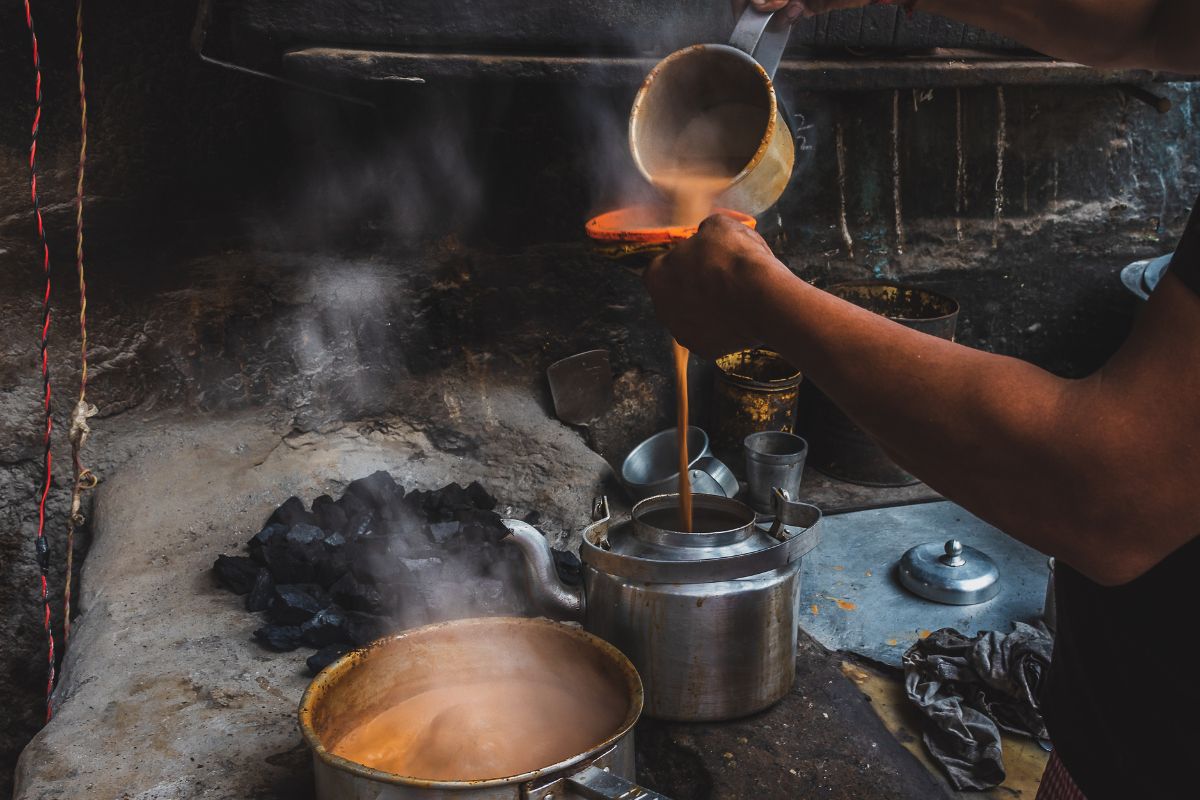
The Word’s Out!
In conclusion, chai tea latte is a popular and flavorful hot beverage that combines the comforting qualities of tea, spices, and milk.
Additionally, it provides a soothing and aromatic experience, often enjoyed as an alternative to coffee-based lattes. While a chai tea latte can offer a moderate energy boost due to caffeine and invigorating spices, one must consider individual preferences, dietary needs, and moderation when incorporating it into a balanced and healthy lifestyle.
